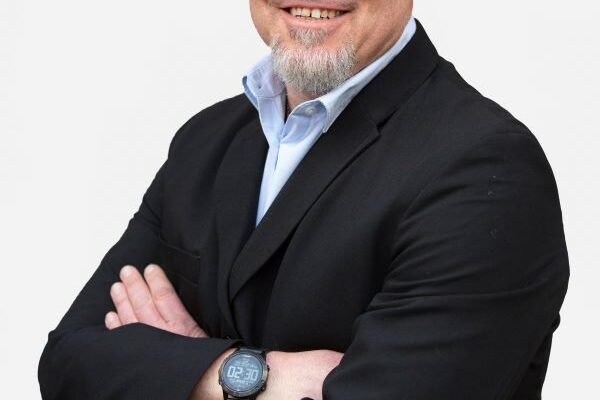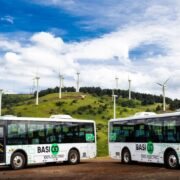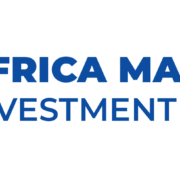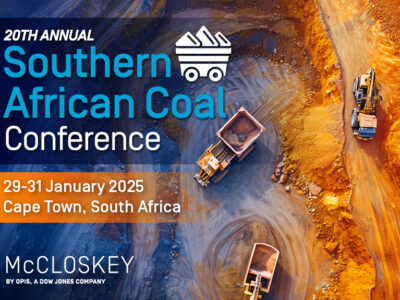
Please explain DP World’s movement into the worlds of golf and cricket as a sponsor.
It’s a fantastic opportunity for brand building and through our partnerships, we can grow these sports and drive positive community impact.
Have you been to some of these sporting events?
I attended the Nedbank Golf Challenge, which is part of the DP World Tour. It was great to host our clients at this event.
What are your plans for Africa?
We have big plans for Africa. We currently have a representation in 48 markets, either through our own operations or through agencies and partnerships. In our key markets, we are making significant investments.
And that is part of a growth trajectory?
Yes, these investments are key to our growth trajectory. We have made a large investment in Rwanda for example, and our Inland Container Depot there. We recently signed the Port of Dar es Salaam on a concession basis and we are investing further into the Maputo Port, so we are continuing to expand.
Biography
 Gustav Mertz
Gustav Mertz
Gustav Mertz is Executive Vice President: Bulk and Corridors for Sub-Saharan Africa at DP World.
Prior to this role, Gustav was Senior Vice President for KWS Logistics, a bulk transportation company owned by Imperial, a DP World Company.
A 30-year veteran of the logistics and mining industries, Gustav has held senior management and directorships at companies including DAWN Limited, Metalmin Worldwide, Boart Longyear and Petzetakis Africa.
His expertise lies in strategy development, supply chain management and optimisation and operations management. He holds a Bachelor of Commerce (Honours) degree in Transport Economics from the University of Johannesburg and has completed the Global Executive Development Programme at the Gordon Institute of Business Science.
What is your view on the “positive disruption of logistics”?
Participating across the value chain is key. Ensuring that you can manage through the whole value chain is really how you disrupt, because you are creating a seamless flow of goods across borders. In this way, you generate trade collaboration between stakeholders and that is to the benefit of all involved.
Our offering is “from factory floor to customer door”, or in the bulk-corridor space, it would be from “pit to port”. If you manage that whole process across borders and across modes of transport, that’s where the real benefit comes in.
Participating across the value chain is key. Ensuring that you can manage through the whole value chain is really how you disrupt, because you are creating a seamless flow of goods across borders.
Does that include the “last mile”?
This not part of the bulk and corridors offering, but we do offer this in our Contract Logistics business in South Africa and Namibia. Contract Logistics is primarily a warehousing and distribution offering. We also have a Market Access business offering route-to-market solutions.
Please expand.
Our Market Access solutions are designed to provide principals with direct access to consumers by integrating sourcing, sales, distribution and marketing and minimising their exposure to trade risk. We do this by assuming full ownership of inventory.
And because of your access you’re able to give smaller manufacturers who don’t want to take on risk the opportunity to get in?
Exactly. And multinationals too, specifically in the healthcare and consumer industries. We also do a lot of work for global healthcare organisations, giving people access to medicines.
Is your logistics business in the mining sector picking up in South Africa and Africa?
Yes, we are a fairly large player on the Copperbelt; the DRC and Zambia are some of our biggest markets. We have over 2 000 trucks running on those corridors. We specialise in transporting copper and cobalt. We also have a reverse logistics offering where we take chemicals back to the mines, so we have the ability to complete that flow.
 Stacked containers at the Maputo terminal awaiting shipment. Photo: DP World
Stacked containers at the Maputo terminal awaiting shipment. Photo: DP World
What routes do you follow?
We have variability within our road network where we can offer customers multiple corridors. We have vehicles going out of the DRC and Zambia into Walvis Bay, or out of DRC and Zambia into Tanzania, to Beira and to South African ports. So, it’s a multi-corridor strategy.
In South Africa is that Durban and Richards Bay?
Durban mainly. Most high-value commodities go through Durban, as Richards Bay is more of a bulk port that is not really geared to handling containers.
Does the Copperbelt also have rail constraints like South Africa does?
Much of the rest of Africa has the same rail constraints but there is a route that recently opened towards the Port of Lobito in Angola, from the DRC. This is a rail concession that was financed by the international community (mainly the US). In December 2023 they ran their first trials on that line.
What sort of partnerships does DP World engage in?
We will act as a single point of contact, overseeing a client’s entire logistics solution, and manage through the entire supply chain. We partner with mining companies and service providers, and we will partner with state-owned enterprises (SOEs) if it makes sense in terms of the value that we create in the supply chain.
On the corridor, we move the product by road, or it might go onto a multi-modal solution where it goes by rail for a portion of the journey. We then work with service providers that deliver warehousing, or work through our own facilities and clear the cargo onto the vessel for dispatch. We run the port services in a number of ports in the region, so we also handle the cargo in that environment.
So in Africa you don’t use rail services?
We don’t own rail in South Africa or elsewhere in Africa. In India we have a big presence where we manage some railways, but we don’t own the assets. They use our specialist knowledge in movement and scheduling.
 Employees preparing to unload cargo at the Maputo terminal. Photo: DP World
Employees preparing to unload cargo at the Maputo terminal. Photo: DP World
Please comment on the future of trade in Africa in the context of AfCFTA.
We strongly believe that there are big opportunities in Africa to integrate continental markets, specifically through the African Continental Free Trade Area (AfCFTA) agreement. Not only will this help with trade, but with industrialisation, investment and new opportunities on the continent.
Do you see movement on AfCFTA?
Earlier this year, South African President Cyril Ramaphosa was in Durban seeing off a shipment to Ghana. He is taking the lead in trying to progress the agreement. I think there is a general willingness to move things forward, although we have a way to go.
But the signs are encouraging?
Yes definitely, there’s a willingness to make this work. I think it will take time to get it fully working but President Ramaphosa is taking the initiative.
We strongly believe that there are big opportunities in Africa to integrate continental markets, specifically through the African Continental Free Trade Area agreement.
What makes DP World stand out?
Our end-to-end solution offers our customers improved security, better customs procedures and it drives efficiency in the process. We really focus on the full supply chain. We also use control tower technology that gives us clearer visibility in terms of critical bottlenecks. This allows us to adjust the process in order to eliminate delays and to allocate capacity to a specific corridor to ensure that we can move those volumes.
That suggests that you have been investing in technology.
Technology has revolutionised the way we do business and we believe in investing in disruptive tech that helps us provide the most effective and efficient solutions for our customers.
Do you have any concrete targets for South Africa and Africa or do you just want to keep growing?
We are very clear on the areas that we are currently exploring further. For our bulk and corridors business, we aim to expand activity on existing corridors, and grow activity around our current operations. For example, Tanzania is a focus for us since signing the 30-year Dar es Salaam Port Concession in October 2023, and there has been a lot of infrastructure development and investment going into this operation.
At the Maputo Port, where we run the container operations, we are also excited about a recent announcement by the government of Mozambique that advises of further expansion of the port. This will further solidify the port’s position as a pivotal trade hub for Southern Africa.
Visit DP World online: https://www.dpworld.com/









Comments